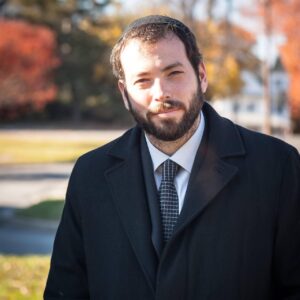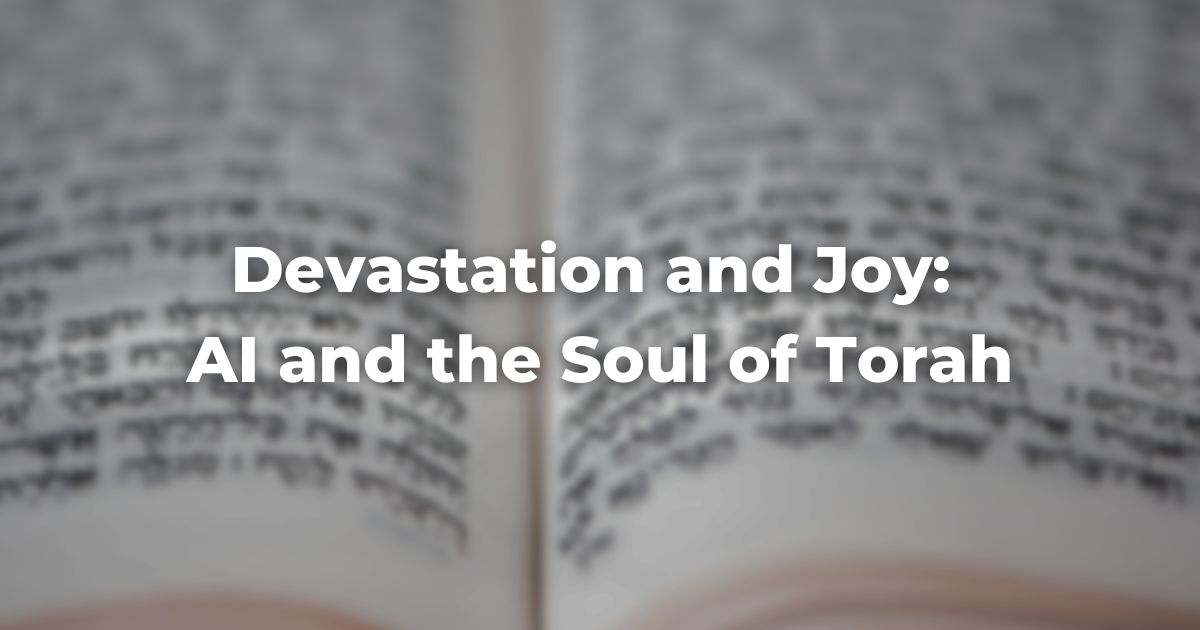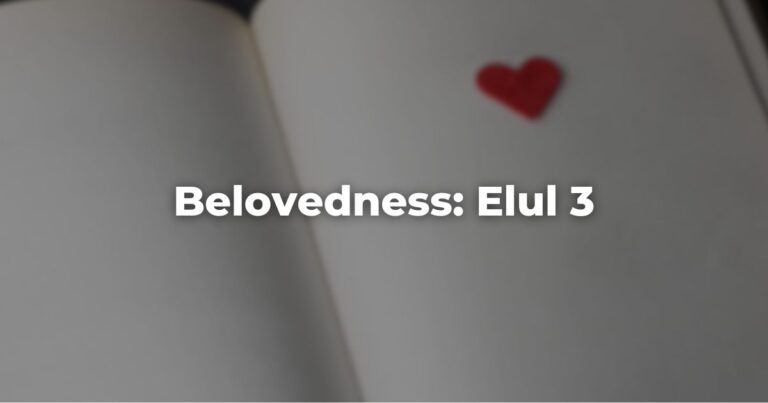Something both absolutely devastating and entirely joyful happened to me this week—two seemingly opposing experiences wrapped into one. It focused my thinking about TorahRefers to the first five books of the Hebrew Bible, the Tanakh, also called the Five Books of Moses, Pentateuch or the Hebrew equivalent, Humash. This is also called the Written Torah. The term may also refer to teachings that expound on Jewish tradition. Read more and our relationship to it.
For the first time ever, I copied a very complicated mystical Jewish text in Hebrew and pasted it into ChatGPT. This was a test, I thought. Let’s see what this thing can really do.
I spend hours every week translating Hebrew texts. It’s a central part of my work and a skill I’ve cultivated over many years. So when I clicked “submit,” I did so with a combination of curiosity and skepticism. Within five seconds, ChatGPT produced a translation—not just any translation, but a remarkably deep, coherent, and accurate one.
I used that translation, without changing a single word, to teach my weekly Parsha class.
You might ask, “What was the quality of the translation?”
And I’ll tell you: it was good.
No—more than good. It was better than I would have translated it.
And that hit hard.
I spent six years in rabbinical school—seven, if you count the extra year—and I’ve been a working rabbi for nearly a decade. One thing I’ve prided myself on, something I’ve worked very hard to achieve, is my fluency in Hebrew. Compared to many of my colleagues, I can read almost any rabbinic text in Hebrew and Aramaic and translate it on the spot. That has always made me feel like I was living the dream. I thought, “This is what being a rabbi is all about.”
But now, here’s ChatGPT, doing it faster—and, in some cases, better—than I can.
So yes, I was devastated. For years, I’ve woken up at 4:30 in the morning to daven, to learn, to practice, to bring these sacred texts to Amcha, to the Jewish people. And suddenly, a machine can do it in seconds.
But then I took a breath. I thought: “Wait a second. This just saved me four hours of work this week. What can I do with that time?”
That’s when it hit me: I had been thinking about my rabbinate all wrong.
More importantly, I had been thinking about Torah all wrong.
Is the point of Torah to be able to translate it from Hebrew into English?
Is it even to intellectually understand it?
No. The point of Torah is to instruct, to transform, to change us. The purpose of learning Torah is not just to acquire knowledge, but to internalize its teachings, to let them shape who we are, how we walk through this world, and how we treat others. Torah is supposed to help us become better people.
And that, my friends, is something ChatGPT cannot do. Not yet, at least.
Because while AI may surpass me in technical translation, it cannot live Torah.
It cannot weep when a verse pierces the soul. It cannot struggle to forgive, to show compassion, to change its behavior, to grow. It cannot reflect on its ego or wrestle with the Divine. Only a human can do that.
As we approach Shavuot, the holiday of receiving the Torah, we read a Parsha that reminds us of the importance of purity and Kedusha—of holiness.
It’s a time to ask ourselves:
- What are we really trying to achieve?
- Are we taking pride in things that are impressive on the surface but ultimately unimportant?
- Or are we proud of the ways we are growing, acting well, helping others, and fulfilling our purpose as human beings?
Learning Torah is a part of that process of fulfilling our purpose.
It provides us with a deep instruction on how we can draw close to God through the mitzvot that the Holy One bestowed upon us. It gives us clear, timeless, and proven marching orders on how to live a good life, even in times like ours when everything seems to be upside down.
Therefore, Torah learning is most effective when we are focused on making sure it actually guides our lives. Torah should be relegated to the past if it is just an intellectual curiosity or badge of achievement.
This is the key to surviving the age of AI. If we cling to accomplishments that machines can now replicate, we will falter. But if we embrace the essence of what it means to be human—empathy, integrity, spiritual transformation—then AI won’t be a threat. It will be a partner.
Yes, at first it may feel devastating, as it did to me. But if we are brave enough to reevaluate, to realign our purpose, we may find ourselves walking toward something deeply joyful. Together, we can use these tools not to replace our humanity, but to uplift it.
Author
-

Rabbi Marcus is the rabbi of Temple of Aaron in Saint Paul, Minnesota. He previously served as rabbi of Temple Sinai in Middletown, NY. In addition, Rabbi Marcus is the leader of trad Jazz and Klezmer band, Jewbalaya. He was ordained from Ziegler School of Rabbinic Studies in 2016. Rabbi Marcus is a passionate teacher of Torah and brings with him expertise in a diverse range of Jewish subjects from Kabbalah and Hasidut (Jewish mysticism) to Jewish Philosophy, TalmudReferring to one of two collections, the Jerusalem and Babylonian Talmuds, edited in the 6th century, that contains hundreds of years of commentary, discussion, and exploration of the ideas in the Mishnah. One could describe it as Mishnah + Gemara = Talmud Read more, TanakhAn acronym for the name of the Hebrew Bible: Torah, Neviim, and Ketuvim. Read more, and Jewish Law.
View all posts




